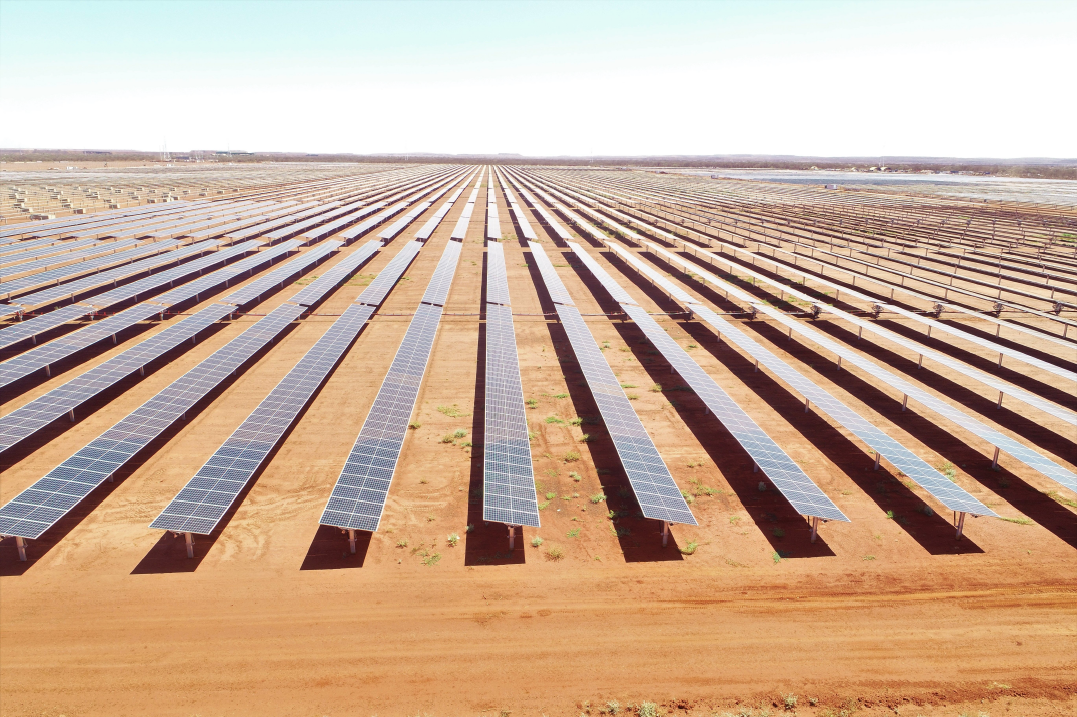From pv magazine global
Solar has been installed at “record-breaking” speed in the European Union for the third year in a row, said SolarPower Europe Chief Executive Officer Walburga Hemetsberger ahead of a recently published report.
According to the report, member states installed a combined total of 56 GW in the last 12 months – consistent with three years of 40% year-on-year gains. Germany took the top spot by installing 14.1 GW, followed by Spain with 8.2 GW, Italy with 4.8 GW, Poland with 4.6 GW and the Netherlands with 4.1 GW.
But this “success story” could soon be over, SolarPower Europe cautions, with the past three years of “extremely fast growth” expected to slow as energy prices dip to pre-crisis levels and the PV development landscape becoming increasingly “aggravated” by an “inflationary environment” plagued with high-interest rates. The association forecasts next year’s growth to only be 11%.
Residential demand for rooftop solar has also slowed, with a one-year minimum wait for utility-scale legislative instruments to take effect, said SolarPower Europe.
“Despite impressive achievements until now, solar is reaching a critical juncture at which the further growth path for the lowest cost, most versatile, and most simply deployable power technology will be decided on,” according to the report.
SolarPower Europe Policy Director Dries Acke said it is “fortunate” that extreme energy prices are not driving solar’s achievements but this means governments should pick up the slack.
“We cannot accept grid connection times of more than 4 years, we cannot allow slow local progress on permitting, we cannot risk trade barriers slowing deployment, nor miss the chance to re-shore European solar manufacturing,” he said. “That does mean; however, the onus is back on policymakers to ensure good investment conditions for solar.”
According to the report, the European Union’s total installed is currently 263 GW – a 27% increase from last year – with 2025 installation figures forecasted to be 73.8 GW followed by 84.2 GW in 2026 and 93.1 GW in 2027.
The association recommends policy amendments to support solar expansion in Europe. This includes the European Central Bank lowering the cost of capital for “green investments,” improving grid flexibility, nurturing the workforce, improving permitting processes, and scaling up sustainable, “diversified” solar supply chains.
SolarPower Europe said that trade defense “instruments” are not part of the solution as investigating and implementing trade barriers on solar is a “lose-lose strategy for Europe.”
SolarPower Europe and another major player in the solar debate, the European Solar Manufacturing Council (ESMC), have recently been at loggerheads over whether the European Union should limit products from entering the region made from alleged forced labor.
SolarPower Europe said in the report that it “looks forward” to the first European Commission’s environmental rules for solar taking effect, as well as the upcoming Forced Labour Ban Act and the Corporate Sustainability Due Diligence Directive. These initiatives will help the supply chain become “more sustainable, transparent and free of any links to forced labor,” it said.
The association also said it had called on EU decision-makers to recognize its Solar Stewardship Initiative (SSI) in legislation to ensure “transparency” across the global solar value chain.
This content is protected by copyright and may not be reused. If you want to cooperate with us and would like to reuse some of our content, please contact: editors@pv-magazine.com.








By submitting this form you agree to pv magazine using your data for the purposes of publishing your comment.
Your personal data will only be disclosed or otherwise transmitted to third parties for the purposes of spam filtering or if this is necessary for technical maintenance of the website. Any other transfer to third parties will not take place unless this is justified on the basis of applicable data protection regulations or if pv magazine is legally obliged to do so.
You may revoke this consent at any time with effect for the future, in which case your personal data will be deleted immediately. Otherwise, your data will be deleted if pv magazine has processed your request or the purpose of data storage is fulfilled.
Further information on data privacy can be found in our Data Protection Policy.